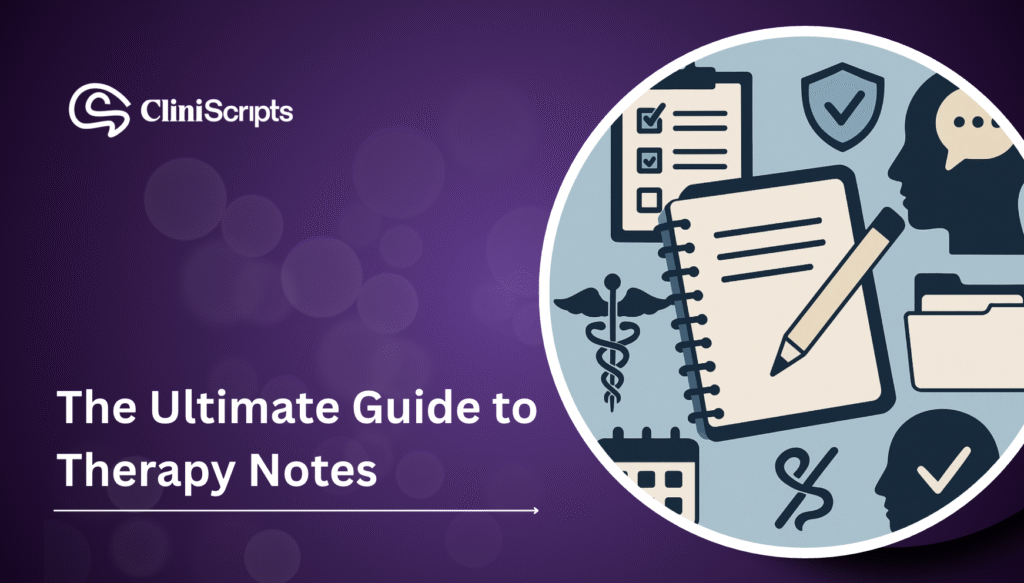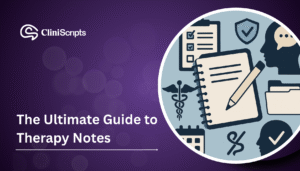Writing effective therapy notes is not just a task; it’s an essential component of mental health care that impacts clinical practice, client confidentiality, and even legal compliance. This guide aims to help therapists understand the nuances of writing, organizing, and staying compliant with therapy notes.
Understanding the Purpose of Therapy Notes
Therapy notes serve several functions beyond just documentation. Here are the primary purposes:
- Track Progress: Notes help therapeutic professionals keep track of a client’s progress over time, allowing for adjustments in treatment when necessary.
- Legal Documentation: They serve as an important legal record that can support clinical decisions, especially in cases that warrant due diligence.
- Communication: Notes facilitate communication between various professionals involved in a client’s care, ensuring everyone is informed about the treatment plan and any changes made.
- Ethical Responsibility: Maintaining accurate notes upholds professional ethical standards, contributing to better care for clients.
How to Write Effective Therapy Notes
Writing therapy notes may seem straightforward, but a systematic approach can enhance their effectiveness. Here are some practical tips on how to craft meaningful entries:
- 1. Use Established Formats: Adhering to established formats such as SOAP (Subjective, Objective, Assessment, Plan) or DAP (Data, Assessment, Plan) can streamline your note taking process.
- 2. Be Concise Yet Detailed: Your notes should contain enough detail to inform future sessions while remaining succinct. Focus on key observations and any changes in behavior or mood.
- 3. Maintain Professional Language: Use clear, professional language while avoiding jargon that may confuse other professionals reading the notes later.
- 4. Document Specifics: Include measurable goals, specific interventions used, and clients’ responses. The more specifics you include, the more useful the notes will become during reviews or legal scrutiny.
- 5. Date and Sign Your Notes: Always date your notes and, when required, sign them. This not only provides legal protection but also clarifies when the information was documented.
Organizing Therapy Notes
Organization is the next step in ensuring that your therapy notes are both accessible and useful. Here’s how to keep your notes in order:
- 1. Use Digital Tools: Consider using electronic health record (EHR) systems or note-taking apps designed for therapists. These platforms often come with built-in compliance features.
- 2. Create a Consistent Filing System: Whether you’re using paper files or digital documentation, maintain a consistent organization system. You could sort notes by client name, therapy type, or date of service.
- 3. Back Up Your Records: In our digital age, losing data can be a significant risk. Regularly back up your notes to prevent loss and ensure that sensitive client information remains protected.
- 4. Review Regularly: Schedule time to review and edit past notes. Regular reviews can help you track trends in a client’s progress and refine future treatment plans.
Staying Compliant with Regulations
Compliance with local laws and ethical guidelines is non-negotiable in the realm of mental health practice. Here’s how to ensure you remain compliant in your note-taking:
- 1. Understand HIPAA Regulations: The Health Insurance Portability and Accountability Act (HIPAA) sets strict standards for protecting patient information. Familiarize yourself with these regulations and ensure that any notes you keep are stored securely.
- 2. Informed Consent: Before recording sensitive information, always obtain informed consent from clients. Ensure they understand what information is collected and how it will be used.
- 3. Be Aware of State Laws: Laws governing mental health record-keeping can vary by state. Stay educated on your local legal requirements to avoid non-compliance.
- 4. Regular Training: Participate in ongoing professional development and training on documentation and compliance. Keeping up-to-date will not only enhance your practice but also serve your clients better.
Conclusion
Therapy notes are a fundamental aspect of mental health care. By understanding their purpose, employing effective writing strategies, organizing your documentation systematically, and ensuring compliance with regulations, you are not just documenting your sessions but enhancing the quality of care you provide. Ultimately, well-maintained therapy notes pave the way for improved outcomes and foster trust between client and therapist. As mental health professionals, we have the incredible responsibility to document, reflect, and improve continuously—not just for ourselves but for our clients who rely on us.
Utilizing services like mental health transcription services can aid in this process, allowing professionals to more efficiently focus on client care and less on the documentation. Moreover, those looking to streamline their workflow might find that therapy transcription services can significantly simplify note-taking tasks. In situations where rapid note-taking is necessary, having access to tools that can transcribe audio to text can be highly beneficial.










